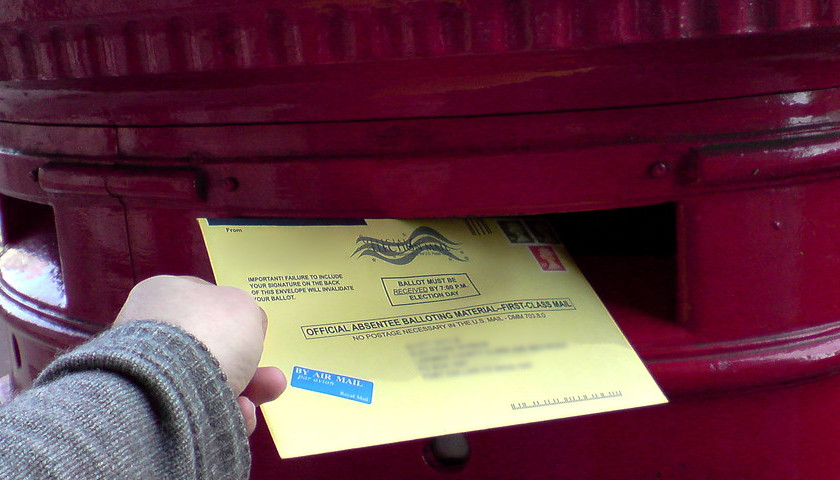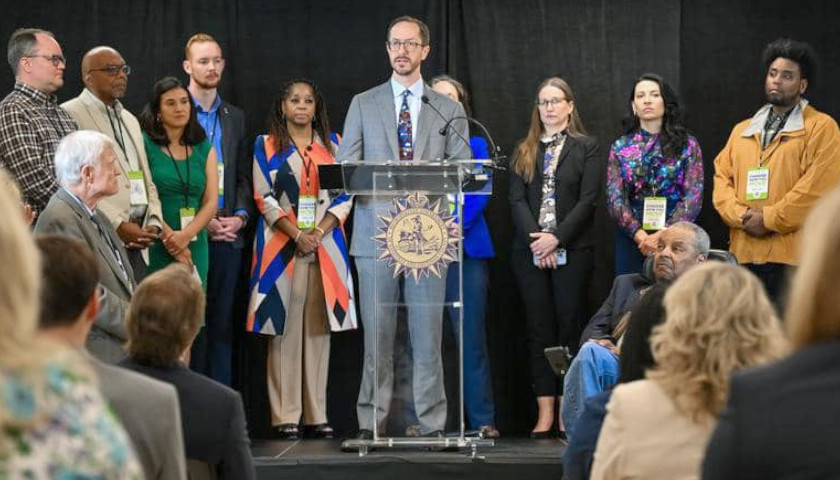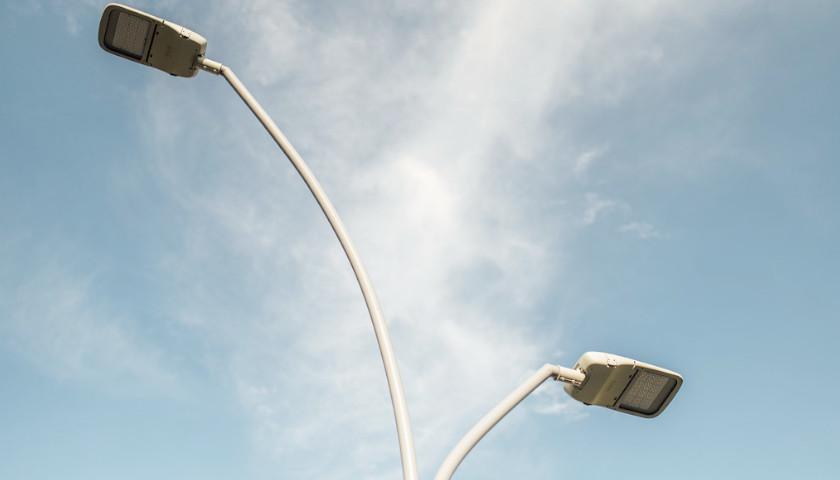Tennessee must give all of its 4.1 million registered voters the option to cast ballots by mail during the coronavirus pandemic, a judge ruled Thursday.
Davidson County Chancellor Ellen Hobbs Lyle ruled that the state’s limits on absentee voting during the pandemic constitute “an unreasonable burden on the fundamental right to vote guaranteed by the Tennessee Constitution.” The judge wrote that any eligible voter can get an absentee ballot to avoid contracting or passing on COVID-19 in the “upcoming elections during the pendency of pandemic circumstances.”
The decision upends a determination by Republican Secretary of State Tre Hargett’s office that fear of catching or unwittingly spreading the virus at the polls wouldn’t qualify someone to vote by mail, The state argued such an expansion wouldn’t be feasible for the 2020 elections, claiming lack of money, personnel and equipment for increased voting by mail, among other concerns.
The decision requires the state to “prominently post on their websites and disseminate to County Election Officials that voters who do not wish to vote in-person due to the COVID-19 virus situation are eligible to request an absentee ballot by mail or that such voters still have the option to vote in-person during Early voting or on Election Day.”
The judge wrote that the state has taken an “unapologetic” position and has relied on “oddly skewed” assumptions — including assuming preparations for 100 percent of registered voters to vote absentee if all were allowed — that go against its own expert and industry standards. Eleven other states, meanwhile, have taken a “can-do approach” by relaxing voting by mail restrictions for the 2020 election, while two-thirds of states have allowed vote by mail for everyone for years, Lyle wrote.
“When, however, normal industry-recognized assumptions are used, the evidence establishes that the resources are there to provide temporary expanded access to voting by mail in Tennessee during the pandemic if the State provides the leadership and motivation as other states have done,” the judge wrote.
Hargett spokeswoman Julia Bruck indicated that the fight is expected to head for an appeal. The attorney general’s office blasted the court’s decision as failing to appropriately consider the “extensive safety measures” within the state’s COVID-19 election plan.
“It is yet another court decision replacing legislation passed by the people’s elected officials with its own judgment, largely ignoring the practicalities of implementing such a decision, and doing so in the midst of a pandemic and budget crisis,” Attorney General Herbert Slatery said in a statement.
Tennessee has more than a dozen categories that qualify someone for an absentee ballot, from being sick to being 60 or older.
The Republican-led Legislature and GOP Gov. Bill Lee have dismissed the idea of offering absentee ballots to all voters, with lawmakers voting against Democratic expansion proposals more than once this week as they meet during pandemic times.
Instead, state election officials have recommended preparations as though all 1.4 million registered voters 60 and older — about one of every three registered voters — will cast mail-in ballots in the Aug. 6 primary. Historically, Tennessee has historically seen less than 2.5 percent of votes cast by mail, the state has said.
Several states who have refused have been sued, including Texas, where a federal judge last month ordered absentee voting be made available to any voter in the pandemic.
Tennessee’s voter turnout was 14 percent in the August 2016 primary, then almost 62 percent for the November 2016 general election, featuring the presidential election. In the 2018 non-presidential year, about 30 percent of registered voters turned out for the August primary, and 54 percent in the November election.
Tennessee’s August election will be another test case as U.S. states try to safely prepare for the fall general election highlighted by the re-election bid of President Donald Trump, who has been staunchly against opening up absentee voting to everyone during the pandemic.
The state court lawsuits were led by #UpTheVote901 and by the American Civil Liberties Union of Tennessee.
“This is a major victory for voting rights, said Dale Ho, director of the ACLU’s Voting Rights Project.
“This ruling eliminates the excuse requirement for the 2020 elections, meaning Tennesseans will not have to risk their health in order to vote.”
The Lawyers’ Committee for Civil Rights Under Law and the Campaign Legal Center have filed a similar federal lawsuit.
Tennessee official: Don’t send forms yet for expanded voting
Tennessee’s election coordinator told his local counterparts Friday not to send absentee voting applications to some Tennesseans just yet, guidance issued the day after a court ordered that all 4.1 million registered voters can vote by mail during the coronavirus pandemic.
In his email, Tennessee Elections Coordinator Mark Goins told local election officials not to send the applications for people citing illness or COVID-19 as a reason. He wrote that the state may be revising its application form and that it will ask an appeals court to block the expansion to allow all voters to cast ballots by mail during the pandemic.
Those seeking to vote by mail for other valid reasons, including all voters 60 or older, can still be sent applications, Goins wrote.
Davidson County Chancellor Ellen Hobbs Lyle’s ruling late Thursday instructs that anyone who “determines it is impossible or unreasonable to vote in-person at a polling place due to the COVID-19 situation” is eligible to check a box on the absentee ballot application about “being hospitalized, ill or physically disabled.”
Officials began accepting applications to vote by mail last month for the upcoming Aug. 6 primary election in Tennessee.
“If a voter calls and ask for an application because of COVID-19, go ahead and take their information so you can send them a form later with the revised language if we update the form or a stay is not granted,” Goins wrote Friday morning.
The Tennessee Journal first reported the emails.
The state defended the guidance, saying it complies with the court’s ruling. But the decision drew criticism from a group that sued for the expansion in a separate federal case, calling the election official’s decision “obstruction and defiance.” And Democratic state Senate Minority Leader Jeff Yarbro said in a Twitter response that “court orders are not optional.”
“The state’s order is clear,” said Kristen Clarke, president of the Lawyers’ Committee for Civil Rights Under Law, which filed one of three similar lawsuits.
“This kind of obstruction and defiance is intended to have one purpose — making it harder for people to vote.”
In a statement to The Associated Press, Goins said state officials “have communicated to counties that they should maintain requests related to COVID-19 in a way that will allow them to be processed in compliance with the trial court order and any further orders in the case. We are also in the process of updating our website with further guidance in accordance with the order.”
In the email, Goins also told local officials not to update their own forms or put anything on their website about the expansion under the court ruling while his office works on language for its website. The site was updated later Friday with the required notice about the court order.
The court’s ruling requires that state officials “prominently post on their websites and disseminate to County Election Officials that voters who do not wish to vote in-person due to the COVID-19 virus situation are eligible to request an absentee ballot by mail or that such voters still have the option to vote in-person during Early voting or on Election Day.”
Lyle ruled that the state’s limits on absentee voting during the pandemic constitute “an unreasonable burden on the fundamental right to vote guaranteed by the Tennessee Constitution.” The judge wrote that any eligible voter can get an absentee ballot to avoid contracting or passing on COVID-19 in the “upcoming elections during the pendency of pandemic circumstances.”
Eleven other states have relaxed voting by mail restrictions for the 2020 election, while two-thirds of states have allowed vote by mail for everyone for years, the judge wrote.
The decision upends a determination by Republican Secretary of State Tre Hargett’s office that fear of catching or unwittingly spreading the virus at the polls wouldn’t qualify someone to vote by mail. The state argued such an expansion wouldn’t be feasible for the 2020 elections, claiming lack of money, personnel and equipment for increased voting by mail, among other concerns.
– – –
Jonathan Mattise reports for The Associated Press.
Photo “Absentee Ballot Drop Off” by Jeff Knezovich. CC BY-SA 2.0.









The judge is right! After all, Trump himself votes by mail; so, why can’t the rest of us?